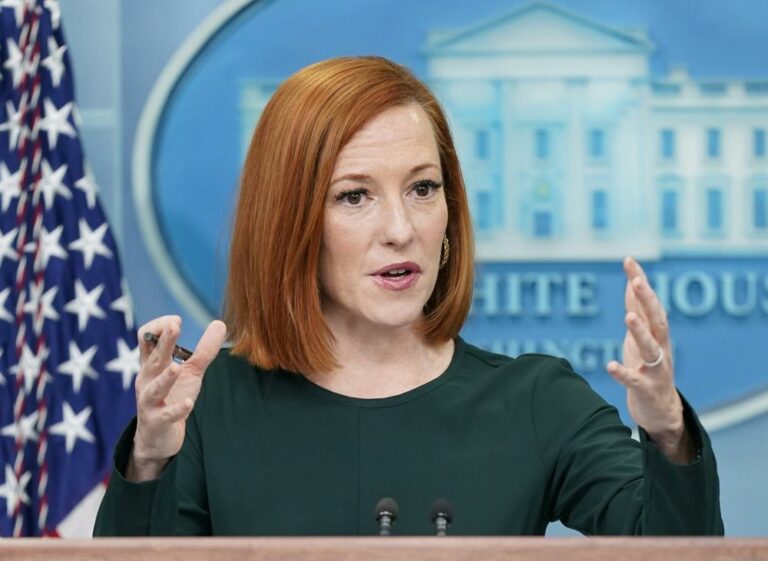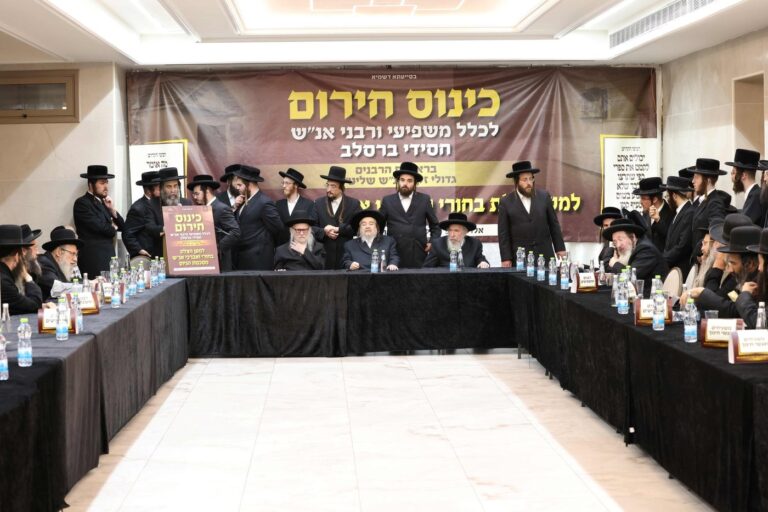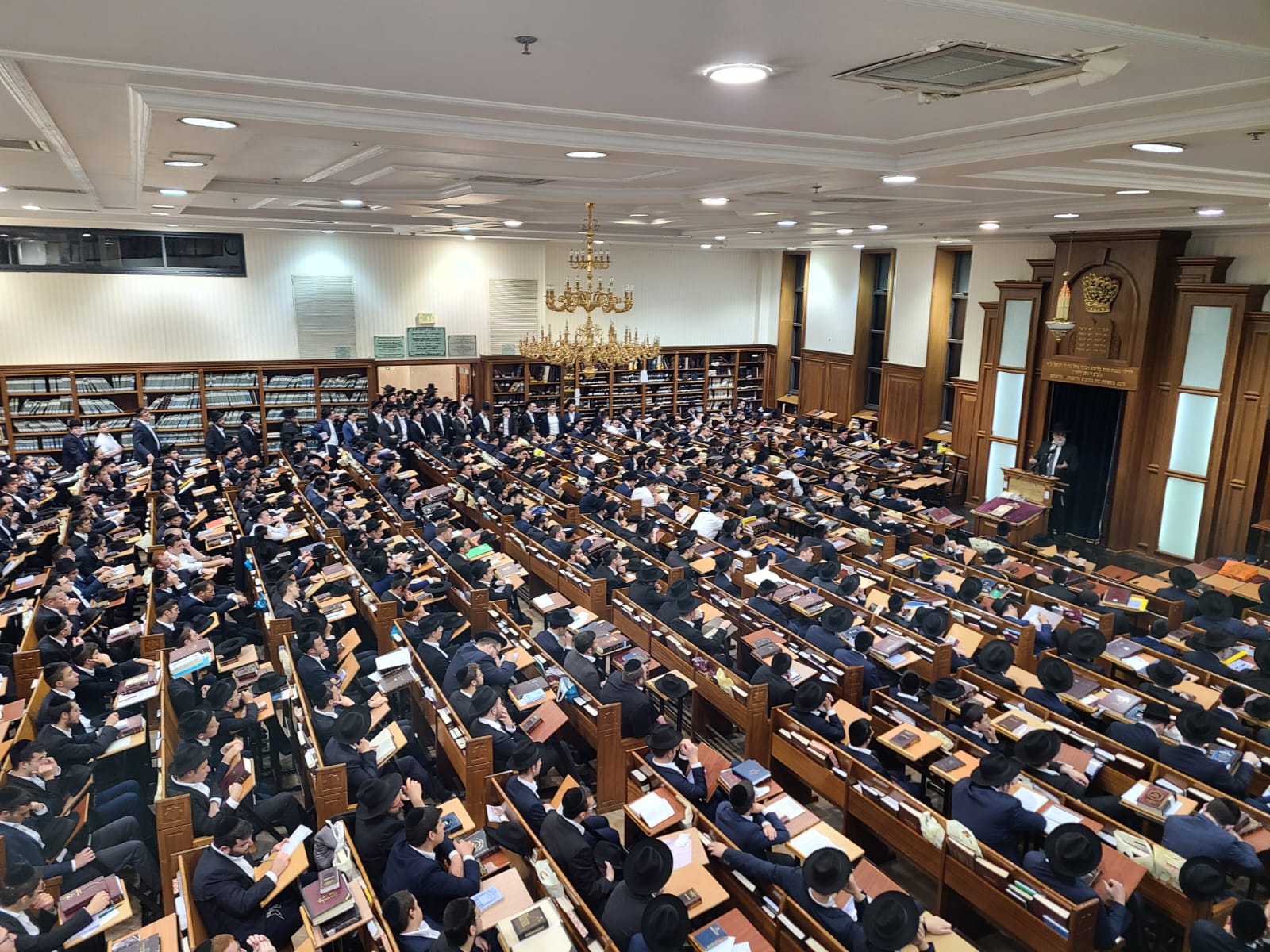 The increase over recent years in special education services like speech, occupational and physical therapies in the Orthodox Jewish community’s yeshivos and Bais Yaakovs isn’t imaginary. Nor does it necessarily reflect any per capita increase in the need for such services. The fact that resource rooms, dedicated classrooms and mainstreaming aids are no longer the province of public schools alone but are readily evident in Jewish schools as well is largely the result of the time and effort that yeshiva advocates have dedicated to the issue of special education. And raising schools’ – and the public’s – awareness of the resources available and how they can be obtained is a vital part of the equation.
The increase over recent years in special education services like speech, occupational and physical therapies in the Orthodox Jewish community’s yeshivos and Bais Yaakovs isn’t imaginary. Nor does it necessarily reflect any per capita increase in the need for such services. The fact that resource rooms, dedicated classrooms and mainstreaming aids are no longer the province of public schools alone but are readily evident in Jewish schools as well is largely the result of the time and effort that yeshiva advocates have dedicated to the issue of special education. And raising schools’ – and the public’s – awareness of the resources available and how they can be obtained is a vital part of the equation.
One example is an ongoing cooperative effort between Agudath Israel of America’s “Project LEARN” and the New York City Department of Education that has led to yeshivos taking a more active role in providing special-ed services. Many yeshivos and Bais Yaakovs now have a designated “special education coordinator” who facilitates the obtaining and organization of services in their schools, and helps maximize the benefits yielded by those services. According to Mrs. Leah Steinberg, director of Project LEARN, there has been considerable and positive feedback to her office about how its work – in particular, a series of workshops aimed at keeping those special-ed coordinators and yeshiva administrators up to date about special-ed services – has changed lives.
At a recent Project LEARN seminar, yeshiva representatives had the opportunity to hear first-hand about fundamental changes being implemented for the coming school year. Helping ensure that coordinators and administrators are fully apprised about such changes is vital, as many parents of students with special needs are overwhelmed by other aspects of the challenges they and their children face. The special-ed maze, says Mrs. Steinberg, is complicated enough for those with the time to tend to its intricacies.
The January 27 workshop featured Michael Gersch, Deputy Executive Director of Special Education at the “Staten Island Integrated Service Center” – which oversees Committees on Special Education (CSE) 6 & 7- which have jurisdiction over most of the yeshivos of Borough Park, Flatbush and Staten Island. Over fifty principals and resource room coordinators were in attendance.
Pointed questions were presented by the yeshiva representatives and ably fielded by Mr. Gersch and Individualized Education Program manager Janet Blit. There was a strong feeling that the presenters and their listeners had precisely the same goals – chanelling important benefits to the community’s children and advancing their academic achievements – and the same determination to reach them.
After the workshop, Mrs. Steinberg met with Mr. Gersch to follow through on specific assurances made during his presentation.
Mrs. Toba Lichtenstein, Director of Special Services of Prospect Park Yeshiva, felt compelled to attend the workshop even though she was on vacation. “In the end,” she said, “it was clear that I would have lost much had I not attended.”
Mrs. Lichtenstein goes on to note that “These workshops are all the more important since they are presented by the office to which our CSEs answer. We are able to communicate our concerns directly to the individuals who are empowered and willing to help us – which translates into better assistance to our children.”
A similar sentiment was voiced by Helen Wax, resource room coordinator for Bais Yaakov of Borough Park. “These workshops,” she said, “are an excellent way to keep us informed of changes in procedures and other new developments.”
“Please,” she asked Mrs. Steinberg, “continue to provide such forums.”
For her part, the Agudath Israel Project LEARN director has every such intention.
“I recognize the great need these workshops fill,” she says. “There are important changes being made in the application processes for special-ed services. And so, getting together like this with people who ‘know the ropes’ is essential for getting new and vital information to those who need to have it.”
(YWN Desk – NYC)











3 Responses
If governor paterson has his way, the yeshivos are going to be needing a lor more special ed in regular schools. Because of the very serious NYS budget crisis, Governor Paterson has proposed that there be significant cuts in the Early Intervention Program.
Among the many changes, Governor Paterson is proposing that parents of children receiving Early Intervention services begin paying for those services. Besides the obvious financial cost to parents, there is the more serious concern that parents may then decide not to pursue Early Intervention for their child who may really need it. We know from experience that children who do not receive these services at an early age will likely need even more therapy in later years – when there are limited programs available.
In addition, the Governor is proposing to require agencies to bill Medicaid and other insurance providers before recovering any monies from the County. This will result in payment delays to our therapists, and upon audit chargebacks to you.
We are asking all our therapists to contact their local state legislators listed below by phone or in writing to demonstrate their strong opposition to the proposed parent co-payment and other proposed changes in the Early Intervention Program. A sample letter is attached.
Your voice can and will make a difference.
95th Assembly District
Assemblywoman Ellen Jaffee
Legislative Office Building 530
Albany, NY 12248
518-455-5118 or 845-624-4601 94th Assembly District
Assemblyman Kenneth Zebrowski
Legislative Office Building 631
Albany, NY 12248
518-455-5735 or 845-634-9791
38th Senate District
State Senator Thomas Morahan
Legislative Office Building 848
Albany, NY 12248
518-455-3261 or 845-425-1818
AGUDAS YISROEL, YOU ARE UNBELEIVABLE!!! ALL OF US OWE A TREMENDOUS AMOUNT OF HAKARAS HATOV TO THIS AMAZING ORGANIZATION! THEY ARE RESPONSIBLE FOR SO MUCH!! YAHSER KOACH TO YOU AND KEEP UP THE GREAT WORK!!
Providing special education classes in yeshivos and bais yaakovs are extremely important. Children, who with the right help have proved themselves capable of becoming good students, will not be able to do so if the help is inadequate. Unfortunately, from my experience with a child with learning difficulties, even programs provided in the yeshiva did not meet his needs, nor the needs of the other students. Some basic problems that yeshivos have to contend with are:
a) Inadequate funds. Hiring truly qualified tutors cost money and parents with large families, for the most part, cannot afford to subsidize these costs.
b) All special needs are not the same. Even those who fit under the general category of “learning difficulties” run the gamut of problems — each of which must be handled differently. One on one teaching is mandatory.
c) To make optimum progress, tutoring should be instituted in the mornings when the children are fresh. Unfortunately, many yeshivos provide this tutoring in the late afternoons when the children are tired out from a full day of “learning”. I might add that these children do not actually “learn” during this period — as many of them find themselves overwhelmed with word symbols being thrown at them all day.
d) General attitude – with the emphasis being placed upon “excellence” in learning, these children often are made to feel inadequate, as if they will never be valued for who they are as individuals — not just as potential talmidei chachomim.
e) Closely related to the above is the issue of “stigma” wherein parents do not want to face the fact that their children have learning difficulties and communicate these feelings to their children. This same attitude may also exist among the educators themselves.
f) Special ed teachers often work in a vacuum – Rabbanim and teachers are inadequately aware of how to integrate these children into their classrooms and, from what I’ve been told by special ed teachers, many times do not work together with them in providing them with the daily curriculum or follow instructions from them on how to write out an exam that eases the strain on the student.
In a time when we, as a community, are experiencing greater numbers of “at risk” youngsters, it is vital that yeshivos and bais yaakovs go out of their ways to attain the funds needed to provide the best possible special ed programming for their students. By taking a child into their environment, the schools make themselves, for the most part, solely responsible for that child’s spiritual and intellectual development. Should they fail that child by not providing the necessary aid to him or her, they will probably have to answer to this before the “kiseh ha’Kavod”.